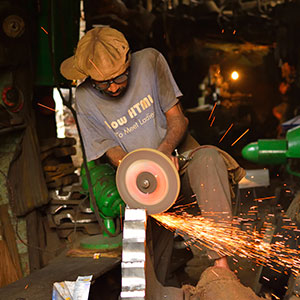
Your Job Might Be Hurting Your Health
You’re up against a deadline… Again. You’ve just rewritten a client’s blog post for the third time, your Slack is pinging non-stop, and your manager just passive-aggressively asked if you’re “feeling distracted lately.” The kicker? You’re still waiting on last month’s paycheck.
This isn’t just stress – your work environment is wearing you down. If you’re stuck in a high-pressure, disrespectful, or downright unsafe job, you’re not alone. So, what can you actually do about it?
What Is A Toxic Work Environment?
Let’s be clear: a “toxic work environment” isn’t just a place you don’t like. It’s one where dysfunction, neglect, or even abuse is baked into the culture. That might look like:
- Constant fear of retaliation
- Micromanagement or unclear expectations
- Favoritism, exclusion, or discrimination
- Lack of support for health—mental or physical
- Unrealistic workloads or expectations
If you dread Mondays not because of your duties, but because the environment leaves you drained, disrespected, or afraid, that’s a red flag. According to Personio, toxic work cultures are often characterized by high turnover, poor communication, and psychological strain on workers.
Physically Unsafe vs. Psychologically Unsafe
An unsafe environment can harm your body, your mind, or both. And neither should be ignored. Jobs to avoid with physical hazards often involve:
- Broken equipment
- No safety gear or protocols
- Exposure to harmful chemicals
- Overexertion without proper breaks
This is common in construction, warehouses, or factory jobs; but even office settings can have unsafe conditions like faulty wiring or poor ergonomic setups.
A psychologically unsafe workplace may look like:
- Bullying or verbal abuse
- Constant overwork and no downtime
- Harassment or discrimination
- Gaslighting or manipulation
Writers, designers, and other creatives are especially prone to these because of deadline pressure, vague expectations, and industries where “hustle” is wrongly seen as a badge of honor.
Can You Sue Your Workplace For Emotional Distress?
In some cases, yes.
You do not have to “tough it out” if your employer’s actions (or lack of action) directly led to severe emotional suffering. If it involved harassment, wrongful termination, or discrimination; you may have grounds for a lawsuit.
Here’s what helps strengthen such a case:
- Document everything: emails, texts, messages, and detailed notes
- Get a paper trail: report concerns to HR or a supervisor in writing
- Consult a lawyer: many offer free consultations for employment issues
Keep in mind: not all toxic environments meet the legal threshold for a lawsuit, but even if it’s not actionable in court, it may still be something you can report or get compensation for in other ways.
Examples Of Unhealthy Work Environments
Wondering if your workplace qualifies as “toxic” or unsafe? Here are a few real-world examples that might hit close to home:
- The overworked night-shift nurse who gets penalized for taking their legally mandated break.
- The copywriter constantly threatened with losing their contract if they miss a deadline (during a family emergency).
- The intern being asked to do full-time duties unpaid and told to “prove they want it.”
- The retail worker denied basic bathroom breaks or working in 100+ degree heat without A/C.
In each of these examples, the workers aren’t just uncomfortable, they’re exposed to conditions that can erode their health and dignity.
When your injuries are mental or physical, you may be eligible for:
- Worker’s comp
- FMLA (Family and Medical Leave Act) protections
- Retaliation protections if you report a hazard or misconduct
- Damages for emotional distress if you’ve been harassed or wrongfully terminated
And if you’re unsure? Ask someone who knows. Call an Ohio Employment Lawyer and learn what you’re entitled to under the law.
Worker’s Compensation Claims We’ve Won
At our firm, we’ve helped everyday workers—just like you—hold unsafe employers accountable. Some of the claims we’ve handled:
- $87,000 settlement for a warehouse worker denied safety equipment and later injured by a forklift
- $50,000 payout for a remote employee who suffered severe burnout and required long-term therapy after repeated verbal abuse by a supervisor
- $120,000 verdict for a female office worker harassed for months and gaslit by management after she reported it
You Deserve A Safe Workplace
It’s easy to downplay what you’re experiencing when everyone around you seems to be silently enduring the same mess. But just because it’s common doesn’t mean it’s okay.
If your job is affecting your sleep, your confidence, your health, or your peace of mind, it’s not just “work stress.” It’s a warning sign.
The good news is you’re not powerless. You can do something about it today:
- Start documenting everything
- Reach out to HR or a legal advisor
- Prioritize your well-being (even if that means stepping away)
- Talk to others; it’s likely they’re feeling the same
- Talk to A Lawyer: Still unsure about your options? Speak to someone who’s handled toxic workplace cases before. It could be the conversation that changes everything.
If They Don’t Value Your Pain, Put A Price On Your Claim.
References:

Call Us For A Free Assessment
(513) 621-2260